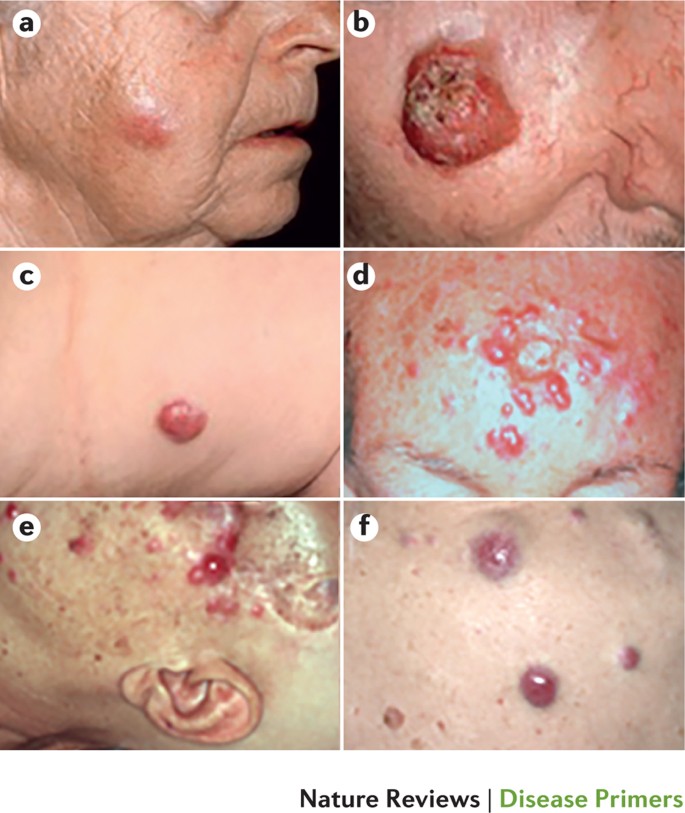How To Test For Merkel Cell Carcinoma
It usually develops as a single painless bump on sun-exposed skin. 56 percent of MCCs are believed to be benign when initially examined by physicians who may mistake the tumors for cysts or infected hair follicles.

Merkel Cell Carcinoma A Description Of 11 Cases Actas Dermo Sifiliograficas
It is not known to cause any common problems.

How to test for merkel cell carcinoma. Factors associated with developing MCC include increasing age fair skin a history of extensive sun exposure chronic immune suppression and the Merkel cell. Merkel cell carcinoma also called neuroendocrine cancer of the skin is an aggressive type of skin cancer that affects only about 400 people in the United States each year. Merkel polyomavirus The Merkel cell polyomavirus MCPyV is a very common virus that is often on our skin.
The diagnosis of Merkel cell carcinoma is made with a skin biopsy which is examined under the microscope. A procedure to find malignant tumor cells in the body. The sample of the affected skin is sent to the laboratory for microscopic study.
Merkel cell carcinoma may be detected during a physical exam by your doctor or dermatologist. But like other skin cancers that number is growing. 1 While MCC is rare the cancer records also indicate that more people are developing this skin cancer than ever before.
A normal Merkel cell is a cross between a nerve cell and an endocrine or hormone-producing cell located on or just. If your doctor thinks you may have Merkel cell cancer MCC or any other kind of skin cancer you probably will need to have some tests. A CT scan of the chest and abdomen may be used to check for primary small cell lung cancer or to find Merkel cell carcinoma that has spread.
The VP1 capsid antibody test is reflexively added to the order by the laboratory. Merkel cell carcinoma is detected by some procedures and tests. In addition screening for the Merkel cell polyomavirus VP1 capsid antibody is done once on the first sample ordered for AMERK testing AMERK2 and billed separately.
Merkel cell carcinoma MCC is a rare aggressive skin cancer. Your physician will perform a physical examination of the skin by closely examining the unusual moles freckles pigmented spots and other skin ailments. It may spread quickly to surrounding tissues nearby lymph nodes or more distant parts of the body.
This process is called a skin biopsy. PET scan positron emission tomography scan. He will remove the tumor cells to send it to the laboratory to find out any signs of cancer.
Youll be asked when the spot or lump first showed up and if it has changed in size or the way it looks. This process is called a skin biopsy. Care Cosmetic treatments Parents kids Public health programs Find dermatologist Sign Diseases conditions Everyday care Cosmetic treatments Parents kids Public health programs Find dermatologist For AAD Members Donate Main menu Diseases conditions Coronavirus Resource Center Acne.
Merkel cell carcinoma MCC is a rare skin cancer. All samples include testing for antibodies to the Merkel Cell Carcinoma MCC oncoprotein. Cancer records show that doctors diagnosed about 2000 MCCs in the United States during 2018.
At the time of diagnosis your medical team will perform other tests to stage your cancer. The rest of your skin will be checked. Your doctor will check for lumps lesions or irregularly shaped moles.
Very rarely it can lead to Merkel cell carcinoma. A CT scan of the head and neck may also be used to find Merkel cell carcinoma that has spread to the lymph nodes. This procedure is also called computed tomography computerized tomography or computerized axial tomography.
Diagnosis and management of Merkel cell carcinoma presents distinct challenges including. The bump may be skin-colored or red-violet and tends to grow rapidly over weeks to months. The stage is based on many factors including the size of the tumor the results of a sentinel lymph node biopsy and scans.
Diagnosis of Merkel Cell Carcinoma The following tests are used to identify Merkel cell carcinoma and to determine its stage how far the disease has progressed. Medical care is often not sought early as these lesions do not appear concerning. Merkel cell carcinoma is diagnosed with the help of some tests and procedures.
The affected skin is physically examined to evaluate the characteristic appearance of the bump. Serology test is a blood test that is helpful in managing MCC patients whether they make these antibodies or not so that possible disease recurrence can be detected early when it. A CT scan of the head and neck may also be used to find Merkel cell carcinoma that has spread to the lymph nodes.
Biopsy In this procedure all or part of the tumor is surgically removed for examination by a pathologist.

Merkel Cell Carcinoma The Skin Cancer Foundation

Merkel Cell Carcinoma Nature Reviews Disease Primers
Komentar
Posting Komentar